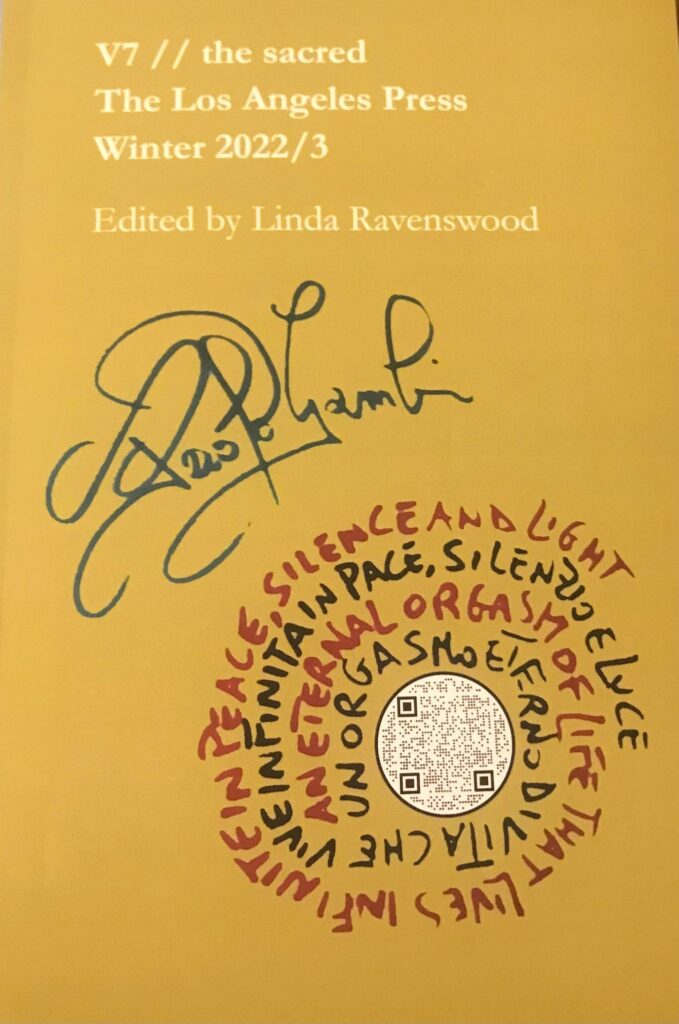Post-contemporary poetry: I am there, and you?

Post-contemporary poetry: what is it?
The world of poetry has walked at a much slower pace than that of the other arts in recent times. While in fact what is called “contemporary art” has already begun to move beyond itself into the “post-contemporary,” I myself have published a postcontemporary manifesto, the world of poetry is struggling hard to break away from the comfortable constructs of modernity, where Gutenberg’s printed word has created a comfortable nest for poets. In fact, the most poets dare to do today is to venture to think of “postmodern poetry.”
The essence of contemporary art is pan-capitalism, that is, the total subjugation of art to the market, resulting in a total absence of a shared aesthetic. This phenomenon is hardly applicable to poetry, which has failed to become a real product, except for a few rare examples, such as Amanda Gorman in the United States or Francesco Sole in Italy.
So the good news is that post-contemporary poetry can exist while sparing everyone the terrible pains that contemporary poetry might have had.
What characteristics can a poem that surpasses the contemporary have?
Since this poetry has to surpass the contemporary, post-contemporary poetry has characteristics that make it embrace the present.
- It is not poetry contained in books. A book is a modern tool. Already postmodern poetry should have outgrown that medium.
- Having surpassed the visual Gutenberg age, it is first and foremost an aural-tactile poem, as McLuhan put it. It is therefore a kind of poetry that finds space in performance, in the declaimed, spoken word. But it is also tactile, that is, linked to the digital dimension.
- It meets technology. In the pervasiveness of technological means, a post-contemporary poet cannot help but put poetry where the present pulses today, whatever the digital container is at any given moment.
- It should overcome the homogeneity-equality concept typical of the modern and focus on a space that manages to bring together the universalist demands of modern civilization and the particularist demands of digital tribal society.
- It meets the other arts. With the end of the hyperspecialization of knowledge typical of modernity, poetry can finally rediscover its relationship with the other arts, music, and the visual arts.
These are just some initial suggestions about post-contemporary poetry. What do you thin
Leave a Reply